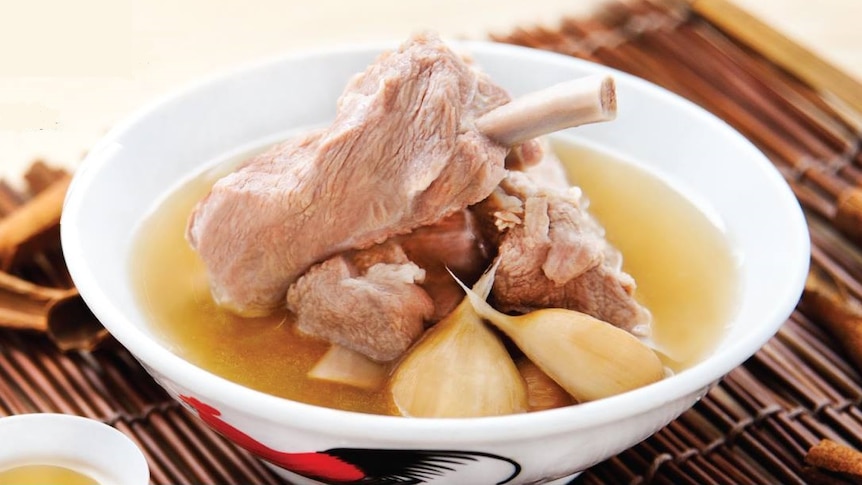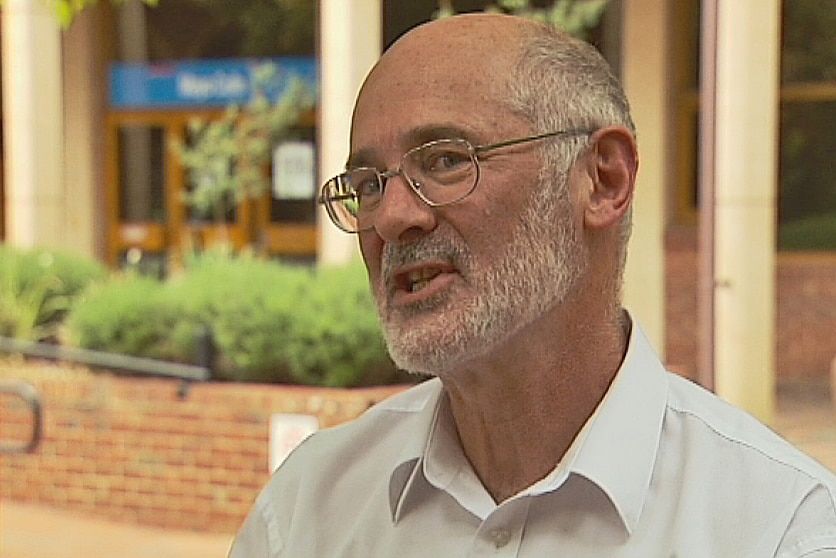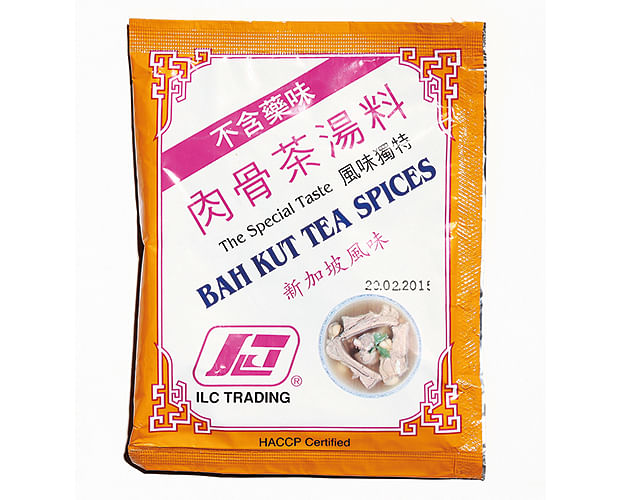- Joined
- Feb 26, 2019
- Messages
- 12,449
- Points
- 113
Bak kut teh herbal soup may cause liver damage and interact with medication, study finds
www.abc.net.au

Bak kut teh soup is also known as "pork bone tea" and is usually served with pork ribs.(Facebook)
A certain type of herbal soup could cause liver damage, a study has found.
The soup studied is called bak kut teh and is popular in Malaysia and Singapore.
It is sold in Australia at restaurants and in its dried form in packets in many Asian supermarkets.
It is also known as "pork bone tea" and is usually served with pork ribs.
The study builds on similar results about the toxic effects of herbal medicine on the liver and interactions with Western medication.
Professor Roger Byard, from the University of Adelaide's School of Biomedicine, made soup from a packet of bak kut teh from his own pantry, as well as three others, and added it to cultures of liver cancer cells.
 Professor Roger Byard used a soup from his own pantry for the study.(ABC News)
Professor Roger Byard used a soup from his own pantry for the study.(ABC News)
Even when the soups were watered down, they all "demonstrated significant toxicity" to the cells, the study published in Forensic Science, Medicine and Pathology found.
"At certain levels the liver cells started to die," Professor Byard told ABC Radio Adelaide.
"In fact, mine was the most toxic, which was kind of disturbing."
That type of soup killed 83 per cent of cells exposed to it in undiluted form and, even when diluted 10 times, it killed 15 per cent of the cells.
Because of the varied ingredients and lack of information on packets, Professor Byard said it was unclear what in the soup could cause liver damage.
"The first thing to say is 'don't panic'," he said.
"Obviously, a lot of people have this soup and don't have a problem. In fact, I love this soup.
"I've had it for years. I've stopped taking it by the way.
The authors called for further study into the potential association between the soup and the cell deaths.
"It may be of particular significance to individuals with pre-existing liver disease," they concluded.
A separate woman in Adelaide died after taking a herbal preparation for inflammatory bowel disease.
"She developed liver failure and liver necrosis and died from it. So, it's not something that we don't see, although it is rare," Professor Byard said.
A herbal medicine found at the Adelaide Central Market contained snow leopard.(ABC News)
One herbal medicine found in Adelaide contained snow leopard, an endangered species that can only be used in medicine made in China if the animal died before 2006, which Professor Byard said was unlikely in this case.
"Even in Adelaide, you can get substances and herbal preparations that have very strange materials in them," Professor Byard said.
He recommended people tell their doctors if they were taking any herbal medication, including Western supplements such as St John's wort, which can interfere with medication taken for organ transplants.
https://www.abc.net.au/news/2022-07...-may-cause-liver-damage-study-finds/101229652
www.abc.net.au
Bak kut teh soup is also known as "pork bone tea" and is usually served with pork ribs.(Facebook)
A certain type of herbal soup could cause liver damage, a study has found.
Key points:
- A woman in Victoria suffered liver damage after eating bak kut teh soup
- Researchers added four different soup formulations to cultures of liver cancer cells
- All of them caused 'significant toxicity' to the cells
The soup studied is called bak kut teh and is popular in Malaysia and Singapore.
It is sold in Australia at restaurants and in its dried form in packets in many Asian supermarkets.
It is also known as "pork bone tea" and is usually served with pork ribs.
The study builds on similar results about the toxic effects of herbal medicine on the liver and interactions with Western medication.
Professor Roger Byard, from the University of Adelaide's School of Biomedicine, made soup from a packet of bak kut teh from his own pantry, as well as three others, and added it to cultures of liver cancer cells.
Even when the soups were watered down, they all "demonstrated significant toxicity" to the cells, the study published in Forensic Science, Medicine and Pathology found.
"At certain levels the liver cells started to die," Professor Byard told ABC Radio Adelaide.
"In fact, mine was the most toxic, which was kind of disturbing."
That type of soup killed 83 per cent of cells exposed to it in undiluted form and, even when diluted 10 times, it killed 15 per cent of the cells.
Vague ingredients make cause hard to know
All of the packets contained different ingredients, with some including vague terms such as "spices, pepper and salt".Because of the varied ingredients and lack of information on packets, Professor Byard said it was unclear what in the soup could cause liver damage.
"The first thing to say is 'don't panic'," he said.
"Obviously, a lot of people have this soup and don't have a problem. In fact, I love this soup.
"I've had it for years. I've stopped taking it by the way.
"People say 'well, herbs are natural, therefore they're OK and safe', but if anything has a therapeutical effect it can have a therapeutical side effect and there's a whole lot of things that happen like herb-herb interactions or herb-drug interactions that we just don't know what's going on and that's the scary thing for me I think.""The problem with herbal preparations — and we've investigated herbal medicines for years — is that we don't know the exact ingredients and because they're metabolised by the liver it can have some very nasty side effects.
The authors called for further study into the potential association between the soup and the cell deaths.
"It may be of particular significance to individuals with pre-existing liver disease," they concluded.
Patient suffered liver damage from soup
The study was conducted after one of the researchers had a Victorian patient who suffered liver damage after eating bak kut teh while also taking medication to lower her blood lipid levels.A separate woman in Adelaide died after taking a herbal preparation for inflammatory bowel disease.
"She developed liver failure and liver necrosis and died from it. So, it's not something that we don't see, although it is rare," Professor Byard said.
A herbal medicine found at the Adelaide Central Market contained snow leopard.(ABC News)
One herbal medicine found in Adelaide contained snow leopard, an endangered species that can only be used in medicine made in China if the animal died before 2006, which Professor Byard said was unlikely in this case.
"Even in Adelaide, you can get substances and herbal preparations that have very strange materials in them," Professor Byard said.
He recommended people tell their doctors if they were taking any herbal medication, including Western supplements such as St John's wort, which can interfere with medication taken for organ transplants.
https://www.abc.net.au/news/2022-07...-may-cause-liver-damage-study-finds/101229652



